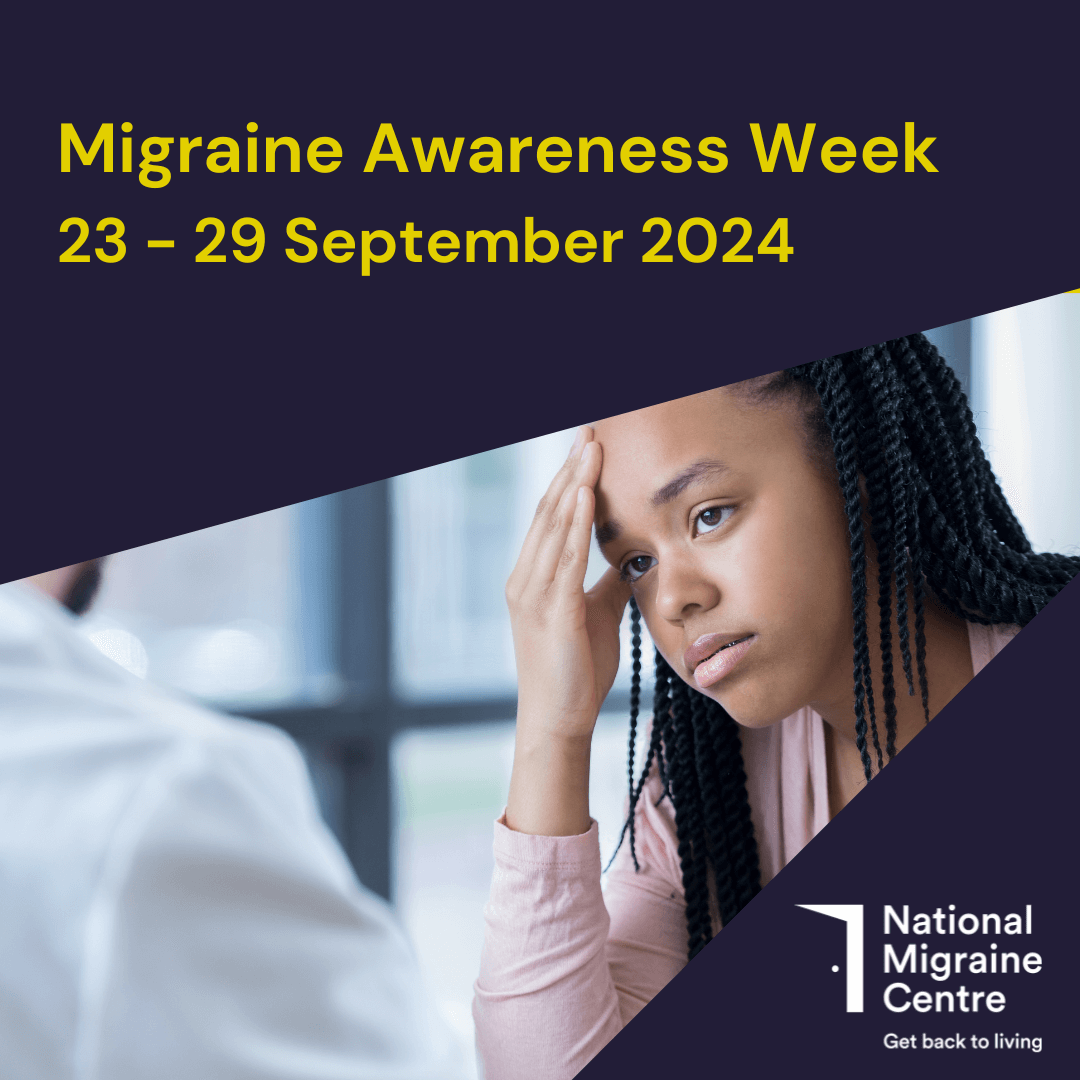Most UK migraine patients wait over five years for effective treatment
A new survey released today by the National Migraine Centre has found that most people (60.7%) with migraine wait over five years to receive effective treatment for the disabling condition – while a shocking 39.5% wait ten years or more.

Migraine Awareness Week 23 -29 September 2024
Despite a raft of effective new treatment options becoming available via the NHS in recent years, the shock survey, released ahead of Migraine Awareness Week (23 to 29 September), shows that fewer than one in six people (16%) can access effective treatment in under a year.
A combination of long waiting times at hospital headache clinics, obstacles to accessing effective new medications, misdiagnosis and a lack of awareness of the new treatment options are all believed to be factors in the long delays.
Often misunderstood as little more than a severe headache, migraine is a complex neurological disorder that can cause a range of symptoms. Alongside headache those responding to the survey reported symptoms including fatigue, brain fog, nausea, sensory sensitivities, mood changes, visual disturbances, vomiting, speech difficulties and disturbed sleep.
Most were affected on more than ten days each month and believed the severity and frequency of their symptoms met the legal threshold to be considered a disability.
Almost one in five (18.7%) of respondents had previously been misdiagnosed with other conditions, including menopause, depression, chronic fatigue syndrome, sinusitis and iron deficiency.
Dr Katy Munro, senior headache specialist at the National Migraine Centre said: ‘With exciting new medications now available via the NHS that are effective for the majority of people with migraine, it’s frustrating that so many are continuing to suffer unnecessarily for so long.
‘This is not the fault of already overstretched NHS GPs who continue to do their best in difficult circumstances. But without a real focus on migraine training and unless barriers to accessing the new drugs are overcome, millions will continue to endure the impact on their lives of poorly controlled migraine.
‘This Migraine Awareness Week, we’re calling for a national effort to deal with a problem that costs the country almost £9bn every year in lost productivity. New anti-CGRP drugs can help us reduce the impact on individuals, their work and careers, their families and friends, and the financial burden on society – but they’re useless unless they’re available to people in need.’
Media Enquiries:
- The survey was conducted by the National Migraine Centre during July 2024. 473 people responded.
- To arrange an interview with a leading headache specialist, or to speak to a case study affected by migraine, contact:
Charlotte Burr
07717 678483
charlotte.burr@nationalmigrainecentre.org.uk
OR
Swati Raina
07803 256535